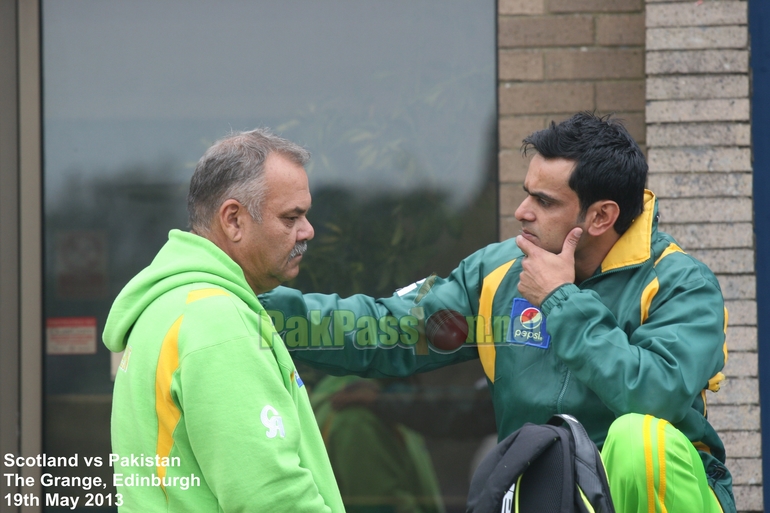In our latest opinion piece, we discuss what one should look for when appointing a coach.
by Saaib Uppal (7th October 2013)
The role of the coach is a much debated one when it comes to international cricket; even more so in the context of the Pakistan national cricket team. Fingers are pointed, questions are asked, and opinions raised whenever the tenure for a coach is coming to its end or even when a few results go in the other team’s favour. There are those who say that a coach is not needed, preferring a more ‘mentor’-like figure. There are others who would instead like to focus on the foreign vs local aspect of the search. Lastly, if you’ve figured out that you need a formal coach, and you’ve decided if they should be from abroad or from Pakistan, as in this example, would a former player necessarily make the best coach? Or are there certain coaching qualifications that should be a minimum requirement before applying?
So what is the role of a coach in international cricket? Are the days of captains like Imran Khan, Clive Lloyd, Allan Border, etc… having a stranglehold over their squads gone? Coaches, whether they are the head-coach or the other specialists, seem to be entering the fold more and more these days. Those saying that the role of a coach is overrated will stress the need for a strong captain. It is the captain who is out on the field with the players, who needs to inspire confidence in the players, and who can lift the team with his own performance. On the other hand, the coach proponents will point to an era of great captains ending, an increase of matches in international cricket which rarely leave a squad untouched, or the introduction of ‘sports science’ into modern-day analysis to show that coaches should not be brushed over as they were in the past.
If you’ve decided that you require a coach who is more influential, for a team such as Pakistan, should you go with a foreign or local coach? There are a couple of ways to look at it when attempting to decide. A foreign coach would be able to come in without the pressure of politics and other influences from outside cricket within the Pakistan system. Pakistan’s best run in recent times came under South African Bob Woolmer, under whom they were able to climb to second in the ICC Test rankings. A local coach provides his own advantages as well. While the language barrier issue is overblown, it does stand to reason that a Pakistani coach could perhaps better understand the mindset of Pakistani cricketers. The players themselves would perhaps feel more comfortable around a fellow Pakistani. Some of the best achievements in Pakistan cricket history include the 1992 World Cup victory, the 2009 World Twenty20 victory, and the 3-0 Test series whitewash of the then number one ranked side, England. All the aforementioned came under a Pakistani coach, albeit a coach that as referred to earlier, was more of a mentor figure.
What about coaching qualifications and experience? Should we look at credentials when accepting applications for a coaching job? Or do we look at runs scored or wickets taken by the applicant? Are former players able to carry their success on the field to off it? One side of the argument makes a case that you can’t beat experience out in the field and that courses and certificates can’t replace proven instances of leadership and inspiration in match situations. Others, such as former Pakistan batting coach Trent Woodhill disagree wholeheartedly. He states in his exclusive interview with PakPassion.net, “I think it’s important for cricket boards around the world that they don’t get too excited about their former greats being world class coaches. If you look at other sports around the world, it’s very rare that a Hall of Famer in baseball will be a great manager or a great coach in baseball. Again, the question to ask is if these guys were successful, why were they successful and more importantly what did they do at the start of their career to be successful?”
The bottom line is that no matter who the coach is, no matter what their credentials or approach, it’s all for nothing if players don’t get their fundamentals right. The coach can’t go out and hold the bat for the batsman or keep the bowler’s ‘line and length’ for him as he runs in. Along the same lines, the coach needs confidence in the selection committee and the cricket board that the right players are being selected. Get all these parties working on the same page, and the coach can work his magic in the background without any attention on him. If not so, as we are seeing with current coach Dav Whatmore, the doubts begin to creep in and the same set of questions come up again when the search for the next coach begins.











